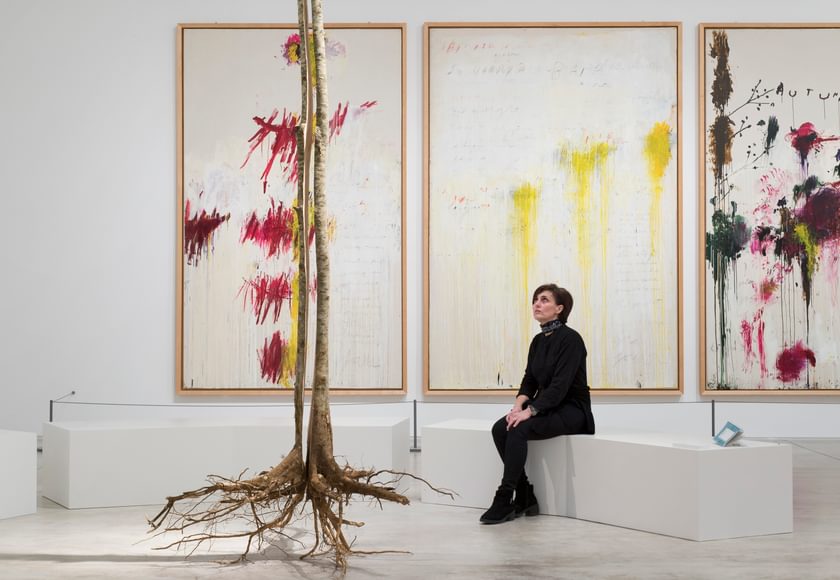John Ellerman Foundation was set up by John Reeves Ellerman, 2nd Baronet (Bt.) in 1971
In May 2023, we published John Ellerman Foundation: A Historical Review, which was researched and written by Drs Michael Taylor, Timothy Twining and Felix Waldmann. This publication provides a robust overview of the history of the Foundation and its antecedent charitable trusts, and it presents clear insights into the philanthropic, business and personal inclinations of John Reeves Ellerman, 1st Baronet (Bt.) (1862–1933), his daughter Annie Winifred (Bryher) Ellerman (1894–1983), and his son John Reeves Ellerman, 2nd Bt. (1909–1973). We very much encourage you to read the publication in full and we share below a summary of some of its key findings and reflections.
The latter set up the antecedents to the present-day John Ellerman Foundation, using the wealth he inherited from his father, John Reeves Ellerman, 1st Bt. Although there have been no direct connections to our founder represented within John Ellerman Foundation for some years now, it is heartening to know that there is evidence that aspects of our work that might still resonate, e.g. our work relating to the triple plnetary crisis.
In researching and sharing the findings from John Ellerman Foundation: A Historical Review, two points are worth noting and sharing:
- John Reeves Ellerman, 2nd Bt. was intensely private and probably would have disliked this publication. We have chosen to make this a public-facing historical account because we believe that there is legitimate interest from those working in and with John Ellerman Foundation to understand where our wealth comes from, and we are keen to model transparency and accountability on this front.
- Applying present day ethical standards to practices and individuals from the past is not straightforward, but we must not shy away from the exercise.
Why was John Ellerman Foundation set up
Our founder’s rationale for setting up the antecedents of what is now John Ellerman Foundation was complex. He was obsessively private about all aspects of his life, including his philanthropy. There is much to comment on his philanthropic endeavours, even if it is caveated by the motivations and methodologies he adopted. Our research showed his considerable support for the blind and for acquaintances in need, including Rachel Swart, a young South African woman, which resulted in our founder establishing The Rachel Swart Fund in South Africa in 1955, which continues to operate today for the relief of individuals with physical disabilities.
However, a primary concern for our founder was to guard against the effects of estate duty for his heir and widow Lady Esther Ellerman (1910–1985) and to ensure Ellerman Lines Ltd. (from which a considerable proportion of his wealth was derived) could continue as a going concern, without estate duty risking the company being broken up. The Trusts that were originally set up — the Moorgate Trust and New Moorgate Trust — were under no obligation from our founder to prioritise grantmaking over ensuring the continued existence of Ellerman Lines Ltd., to the extent that the latter over some years reportedly did not generate a dividend for charitable disbursement.
Our views on the origins of our wealth
John Ellerman Foundation: A Historical Review demonstrates that the businesses from which our wealth is derived consisted principally of shipping, brewing, coal mining, rice milling, real estate, and the proprietorship of newspaper and publication interests. As the publication notes, these business interests ‘were undoubtedly involved in activities which their modern equivalents would reject’, be that due to:
- A clear indifference to the apartheid system in South Africa and Namibia, with South Africa being a country he spent a great deal of time visiting.
- The environmental harms caused by the family’s investments.
- A close connection with the British Empire in the later nineteenth and early twentieth centuries, with John Reeves Ellerman, 1st Bt. presenting ‘himself as a modern Francis Drake: a cynosure for the extension of British rule across the globe’.
The research also uncovered a clear example of antisemitism committed by John Reeves Ellerman, 1st Bt.’s mother, Anne Elizabeth, with the publication in 1897 of a novel she wrote titled The Prime Minister of Würtemburg. This fact contrasts with her grandchildren’s support and respect for Jewish people and Judaism.
We fully acknowledge that the origins of our endowment have links to such practices that resulted in harms and struggles both then and now. It is our intent and belief that our present-day practices help to redress these wrongs. Our grantmaking activities are designed to support work that challenges the symptoms and root causes of systemic and structural issues, and improves politics, society, the economy and the environment in ways that enhance the wellbeing of individuals and communities across the UK and beyond. The endowment, from which our wealth continues to be derived is invested primarily in Environmental, Social and Governance (ESG) funds, but we are fully aware that future generations may reject this practice, and we are proactively looking for new and better ways to invest, both within ESG funds and beyond. We are committed to delivering our work in ways that are transparent, accountable and effective, with environmental sustainability and diversity, equity and inclusion applied across everything that we do. We know that there is more for us to do in redressing past and present harms.
The character of our founder and his family
The personal characters of John Reeves Ellerman, 1st Bt., Annie Winifred (Bryher) Ellerman, and John Reeves Ellerman, 2nd Bt. were quite different to each other! Our founder was considered enigmatic, intensely private and very much burdened by the publicity which accompanied his considerable wealth. There are also accounts of his being highly intelligent, reportedly possessing a photographic memory, which he applied to various technical pursuits like learning languages (including French and Afrikaans), becoming an expert on the life and work of Gilbert and Sullivan, and establishing himself as one of the world’s pre-eminent specialists in the study and classification of rodents. Many of his accomplishments were trivialised by others, as he was considered so unlike his father – a renowned industrialist and financier.
Our founder’s sister, Bryher was much more interested in the family business than her brother. However, given contemporary prejudice against the involvement of women in industry was very much excluded from it. Nonetheless, Bryher did in her own right support and administer several other enterprises, including as a patron the arts, specifically literature and print media, and the study and practice of psychoanalysis.
Thanks and future considerations
In their concluding remarks, Drs Michael Taylor, Timothy Twining and Felix Waldmann state that ‘John Ellerman Foundation is a charity which has had to discover its own history’. Through their work we now have a thorough and thoughtful account of our history, and we cannot overstate our gratitude to them for this. We are also enormously grateful to Professor Peter Mandler and Dr Allegra Fryxell for their expertise and advice on this research. Further thanks go to Dr Katharine Haydon for completing our Oral History Project, which is referenced in the publication, Rosa Deen, Chandra Finnaughty, Beth Astridge, Inez Gretton, Michael Jacobs, Timothy Martin-Jenkins, Gillian Mosley, as well as former and present staff and Trustees for all their support in making this publication possible.
Whilst this is an impressive and comprehensive publication, our intention is to build upon it further as we consider its findings.






